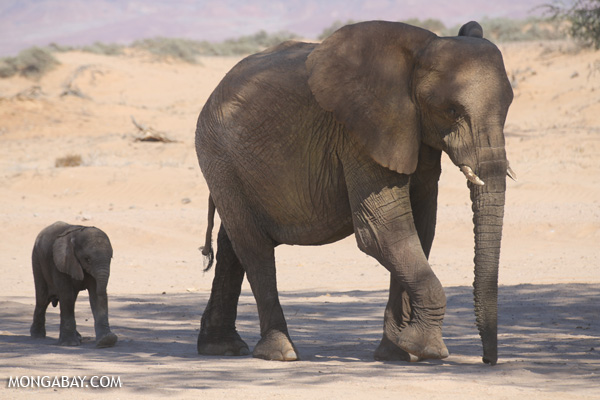Wild cats will remain protected from hunting for now.
After 20 months, Zambia has lifted its ban on hunting, allowing trophy hunters to target numerous species in the wildlife-rich country including elephants. The announcement was made by the country’s Tourism and Art’s Minister, Jean Kapata, who stated that the ban had resulted in a loss of revenue to the Zambia Wild Life Authority (ZAWA).
The ban on hunting still extends to the country’s big cats, however. The government will survey their numbers and propose sustainability measures before any hunting would begin. Zambia is home to lions, cheetahs, and leopards.
The ban proved controversial in Zambia and led to the downfall of the previous Tourism and Arts Minister, Sylvia Masebo. After canceling already-awarded hunting concessions, Masebo was brought before a tribunal and found guilty of abuse of power. She was fired by current President Sata for lying under oath when she testified that Sata told her to cancel the hunting concessions.
Trophy hunting has long been a contentious issue in sub-Saharan Africa. A recent decision to allow a trophy hunter to kill a black rhino—a Critically Endangered species—in Namibia sparked a number of major media stories and a social media war. Namibia faced another controversy when it allowed trophy hunters to kill desert elephants, which are only found in Namibia and Mali.
Trophy hunters often argue that by paying large rates to shoot and kill Africa’s animals, they bring in much-needed revenue for local communities and conservation work. However, some conservationists argue that in the midst of a massive poaching crisis—largely targeting elephants and rhinos—as well as rapidly declining populations of everything from lions to African buffalo, trophy hunting not only adds another threat to species survival, but sends the wrong message to the public. A recent study found that Africa’s big mammals have been halved in just 40 years

Desert elephants in Namibia. Photo by: Rhett A. Butler.
Related articles
Zebras for the win! Africa’s longest land migration discovered

(05/29/2014) With food and water scarce in many parts of Africa, many species migrate long-distances in order to survive. A new study published in the journal, Oryx has found a new record-breaker for the continent’s longest tracked terrestrial migration: a huge group of zebras that traveled a total distance of 500 kilometers (300 miles).
Scientists discover new giant mole rat in Africa (photos)

(04/30/2013) Although the term “giant mole rat” may not immediately inspire love, the mole rats of Africa are a fascinating bunch. They spend practically their entire lives underground building elaborate tunnel systems and feeding on plant stems. This underground lifestyle has led them to evolve small ears, tiny eyes, forward-pointing teeth for digging, and nostrils they can shut at will while digging. Some species are quite social, such as the most famous, the naked mole rat (Heterocephalus glaber), while others live largely solitary lives. If that’s not enough, the family of mole rats, dubbed Blesmols, may even help us find a cure for cancer.
Three developing nations move to ban hunting to protect vanishing wildlife

(01/21/2013) Three developing countries have recently toughened hunting regulations believing the changes will better protect vanishing species. Botswana has announced it will ban trophy hunting on public lands beginning in 2014, while Zambia has recently banned any hunting of leopards or lions, both of which are disappearing across Africa. However, the most stringent ban comes from another continent: Costa Rica—often considered one of the “greenest” countries on Earth—has recently passed a law that bans all sport hunting and trapping both inside and outside protected areas. The controversial new law is considered the toughest in the Western Hemisphere.
Environment ministry drops copper mine in Zambezi park
(01/07/2013) A proposed copper mine set to be built in Lower Zambezi National Park has been rejected by Zambia’s environmental management agency. Australian company Zambezi Resources Ltd, a subsidiary of Proactive Investors, had scheduled the $494 million Kangaluwi Copper Project to begin production in 2015. But their proposal sparked an outcry from environmentalists and government lobbyists concerned about the effects of the open pit mine in the park. Though mining is not generally permitted in the park, Zambezi Resources obtained a Large-Scale Mining License from the government which would have allowed them to mine for 25 years right in the middle of Lower Zambezi National Park.